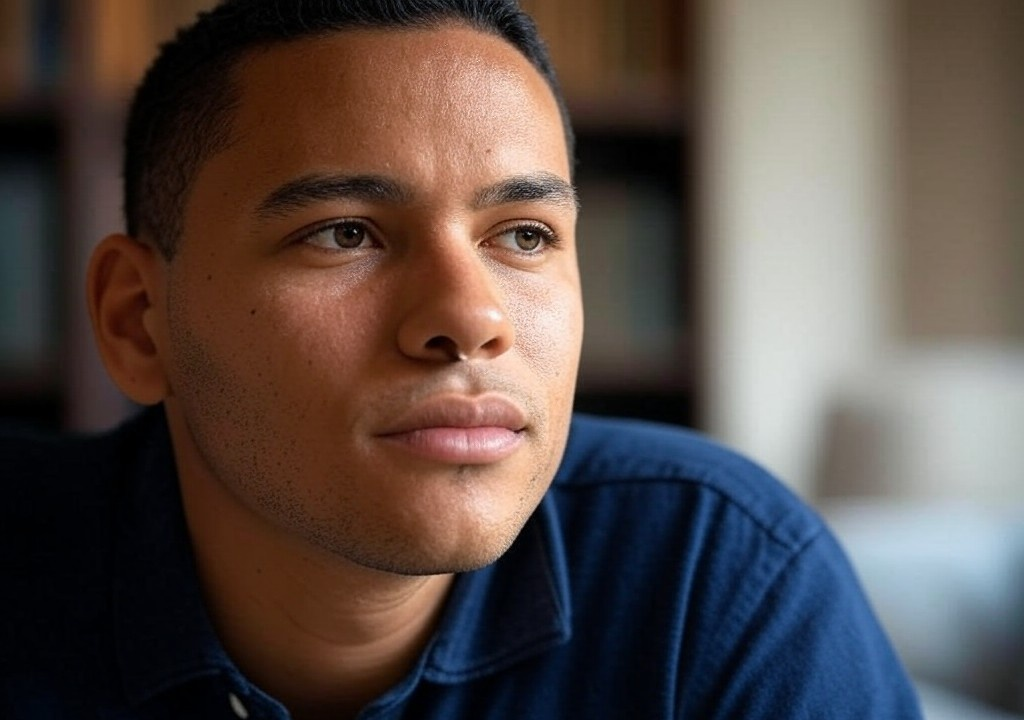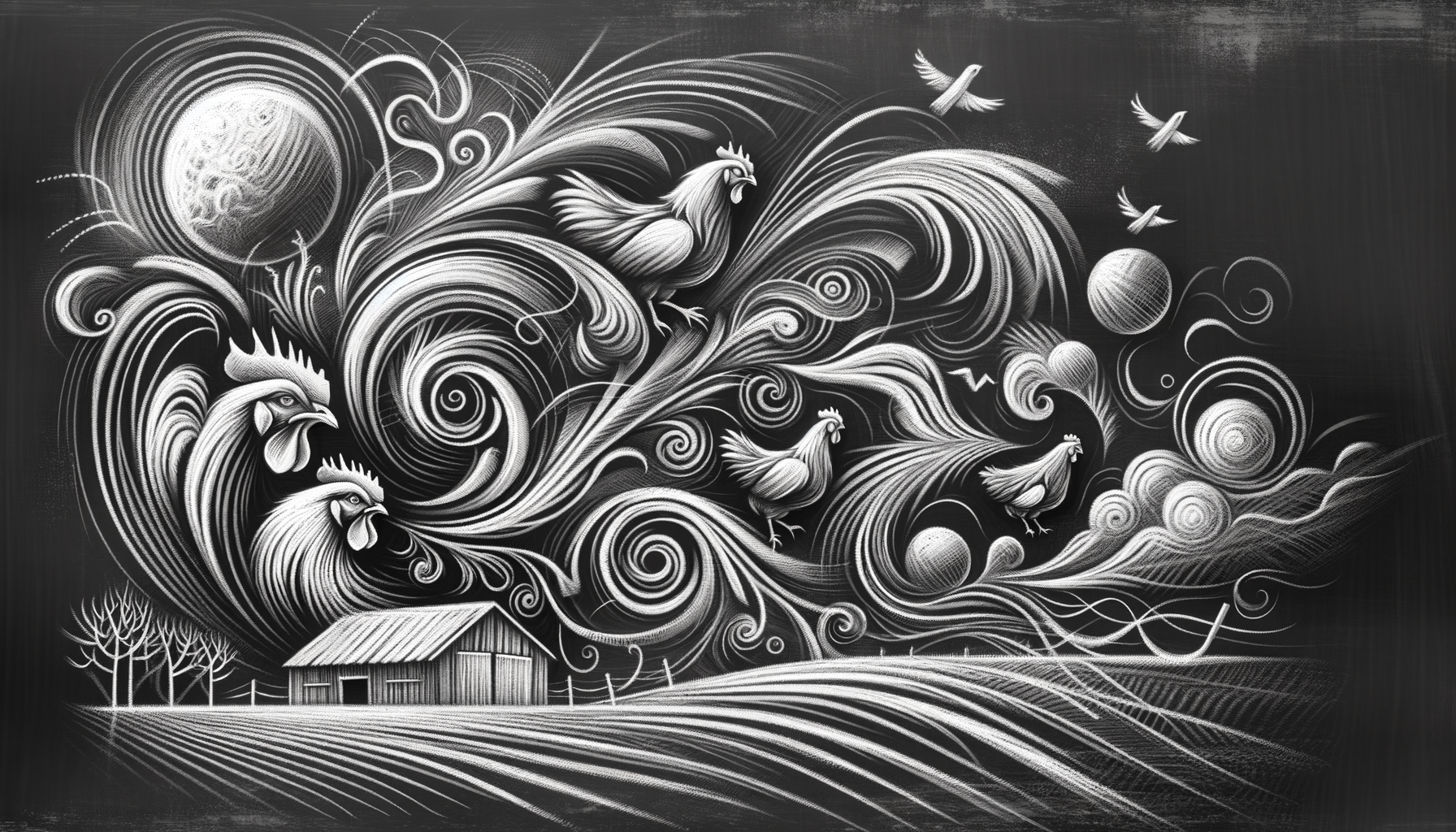The Magic in Every Memory
You know that one family story that gets told every Thanksgiving, the one you could recite in your sleep because you’ve heard it a hundred times, yet somehow it still makes you laugh, groan, or feel all warm inside? For me, that story involves my abuelo, a live chicken, and the most ingeniously reckless escape plan you’ve ever heard.
But let me backtrack.
Growing up in a Cuban household in Miami, I learned quickly that family wasn’t just people you shared DNA with—it was its own universe, full of personalities so big, they could compete with telenovela characters. My family’s stories have shaped the way I see the world, how I approach relationships, and even how I navigate modern dating (yes, abuela has some thoughts about my love life). Turns out, the lessons tucked into those stories are worth unpacking—so let me take you with me.
The Great Chicken Escape
Let’s start with the chicken.
The story goes that when my abuelo was a teenager in rural Cuba, he needed to sneak into a neighboring farm to “borrow” a few chickens for the family dinner. (No judgment—this was the pre-revolution days, and times were tough.) Abuelo hatched what he called a “foolproof” plan, which mostly involved sneaking through a field at night armed with a burlap sack and enough nerve to outwit a pack of guard dogs. Great in theory, but then he panicked and stuffed the chickens down his shirt.
By the time he got home, the chickens had pecked a dozen tiny holes in his chest and started squawking at full volume. He stormed through the door like a bloodied, feathered Picasso and declared, “¡Nunca más!” (“Never again!”)—before sitting down to eat one of the most memorable meals of his life.
The first time I heard this story, I was probably 10 years old, leaning against abuela’s linoleum counter while she fried plantains. I remember asking, “Why didn’t he think of a better plan?” She just shrugged and said, “Sometimes the worst plans still get you what you need.”
Lessons in Chaos
Abuelo’s chicken escapade became more than just a funny tale—it became a metaphor for how my family handles life. Plans aren’t always elegant, but effort counts. My parents embodied this kind of scrappiness when they uprooted their lives in the ’80s. They left behind everything they knew in Cuba for a tiny apartment in Hialeah, where they worked odd jobs, saved quarters in glass jars, and juggled dreams as fragile as their third-hand furniture. Their resilience taught me that things don’t have to be perfect; they just have to work.
In dating, it’s easy to get trapped in the mindset that everything needs to follow some ideal script. You think, “The timing’s not right,” or “I don’t have my life together yet.” But here’s the thing: romance doesn’t come with calendar invites or a checklist. Sometimes, showing up as you are—holes and all—is enough.
Take it from my abuelo. Even if you have metaphorical chickens pecking at your chest (aka doubts, insecurities, bad haircut days), lean in and try anyway. The confidence in chaos is often more attractive than the illusion of perfection.
The Language of Love
Family storytelling is practically a competitive sport among Cuban relatives. At every gathering, someone will inevitably lean back with a cafecito in one hand and say, “¿Tú te recuerdas cuando...?” (“Do you remember when...?”). At this point, everyone braces themselves for what’s next: an over-the-top reenactment, dramatic pauses, and the kind of hyperbole that would make Shakespeare blush.
But there’s more to all this storytelling than just comedy. These tales kept my family connected—they were how we made sense of our lives and passed down our values. And while my grandparents never used buzzwords like “love language,” they showed me how crucial it is to understand someone’s way of expressing care.
Abuela still says things like, “Come más, estás muy flaco.” (“Eat more, you’re too skinny.”) Translation? “I care about you.” For her, food has always been love, and when I’m dating someone new, I notice little echoes of that—like how they show me affection or what makes them feel cherished.
If you’re in a relationship, pay attention to the “languages” in your own life. Do you light up when someone gives you thoughtful compliments, or do acts of service melt your heart? And here’s a pro tip I’m stealing from abuela: If they offer you the last bite of dessert, they’re a keeper.
The Characters You Carry
Then there are the family characters—the ones who seem larger than life, whose personality quirks infiltrate your DNA whether you like it or not. In my family, this would be my Tía Lidia.
Tía Lidia is the drama queen who insists on wearing red lipstick to the beach and recounting all her dating escapades with the flair of a Broadway actress. (“He texted me after five days! What do I look like—a leftover croqueta?!”) She’s unfiltered, unapologetic, and completely unforgettable.
Growing up around her taught me two things: First, you can live a whole life without settling—whether for a person or a situation. Second, know your non-negotiables. Tía Lidia once broke up with a guy because he couldn’t dance salsa, and honestly? Iconic behavior.
When I catch myself overthinking a relationship—wondering, “Is this enough?”—I channel her spirit and ask, “Is this person meeting the rhythm of my life, or are we stepping on each other’s toes?” If something feels off, it’s better to grab your metaphorical red lipstick and keep it moving.
Write Your Own Story
The thing about family stories is that they’re never just about the past. They’re roadmaps for navigating today’s messy, beautiful moments. Whether you’ve got chickens in your shirt, a language of love to decode, or a Tía Lidia reminding you to raise your standards, every tale carries a lesson—and, more importantly, reminds you who you are.
Dating, relationships, and life in general become so much richer when you let yourself be shaped by the stories that came before you. And here’s the best part: You get to write your own, blending the wisdom you’ve inherited with the messiness of charting your own path.
So next time I inevitably embarrass myself in front of someone cute—dropping my coffee, forgetting their name, accidentally saying something ridiculous—it’s fine. I’ll just laugh about it later, over cafecito, with whoever’s lucky enough to stick around long enough to hear the story.
After all, the worst plans still get you what you need.




















